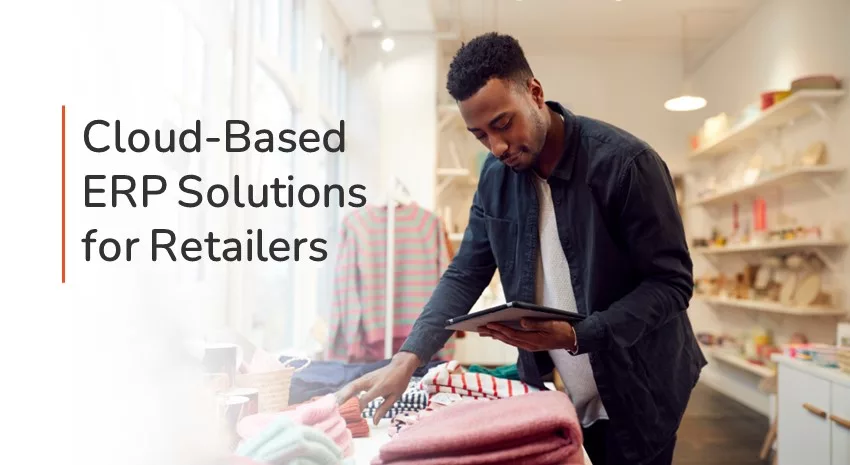Cloud-Based ERP and Hybrid Solutions are Making Inroads with Retailers

The retail industry is adapting to so many different consumer trends and structural issues, and retailers are looking at ways to simplify their business processes in 2022 and beyond. Modern ERP software solutions can help retailers with automation, managing forecasts, inventory replenishment, and more. So retailers are evaluating moves to cloud-based ERP solutions or even hybrid approaches to help allocate their IT resources for other activities.
What are the benefits when moving to a modern cloud-based ERP platform like LS Retail with Microsoft Dynamics 365 Business Central? Below are some of the reasons why one in five businesses are running 75% or more of their workload in the cloud.
Cloud-Based ERP Benefits:
- Lower upfront costs
- Lower maintenance costs (IT departments)
- Most providers maintain very secure environments
- Easy to scale as users are added/removed
- Available on most devices anytime anywhere (with an internet connection)
With an on-premise ERP solution, you need a dedicated team to manage and host ERP software and support day-to-day operations. Cloud-based ERP for retail eliminates the need for your IT team to perform extensive software updates, server management tasks and oversee maintenance. Moreover, Microsoft employs robust security defenses for its Business Central SaaS platform so internal IT teams can focus more on day-to-day operations.
Plus, cloud-based Business Central keeps improving with cumulative updates and major releases. Microsoft automatically sends cumulative updates — minor updates — to Business Central SaaS users and two major updates each year. Business Central SaaS continuously improves and adds new features to address business integration, automated billing, or even new accounting features.
Meeting the Retail Workforce Where They Are
As recent years have shown, the economy and business activity have been extremely hard to forecast, and new trends seem to be emerging all the time. For retailers, they need flexibility, and a cloud-based ERP platform can give businesses’ options when economic activity heats up or slows down. For example, businesses can allocate users and devices as the situations dictate, allowing costs to be set to specific busy periods.
Plus, the retail workforce loves new technology and being able to provide simple web-based tools can help increase productivity. Many companies have implemented a bring your own device (BYOD) strategy that enables retail employees to use their own smartphones to work and run business applications for a variety of tasks. This benefit allows associates to use their own familiar devices and retailers can reduce hardware costs.
The Case for Hybrid SaaS Solutions
While most retailers and their operations have access to the Internet, some applications may require a hybrid ERP solution. Hybrid ERP solutions include a combination of SaaS and on-premise. This can be an option for retailers who have unstable Internet, no back-up options, prefer to upfront purchase licenses — although cloud can still be considered with a perpetual license — or are making a slow transition to the cloud to maximize the investment of the onsite server hardware.
In a hybrid ERP solution, software can also be hosted in a private cloud — such as the Microsoft Azure Data Lake — and allow users in numerous locations to access the system, such as a large entertainment district with smaller business units that need access to the ERP system. This is a trend that is emerging at many entertainment complexes, and even more as restaurants and retailers reimagine how consumers want to spend their leisure time after the pandemic. Change is constant in the retail industry, so lean in!
How to Make the Right Choice for Your Business
While a SaaS deployment of LS Central is ideal for many companies, there are times when a hybrid deployment makes sense. It is important to consider your unique business needs and budget before selecting what works best for your company. Reach out to an ArcherPoint expert for any business consulting needs and find out what a modern ERP system can do for your retail organization.
